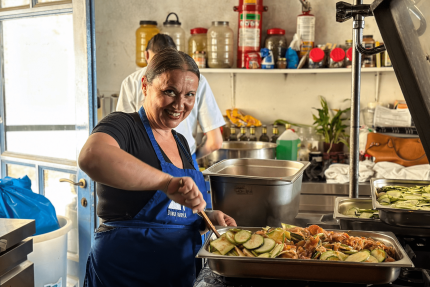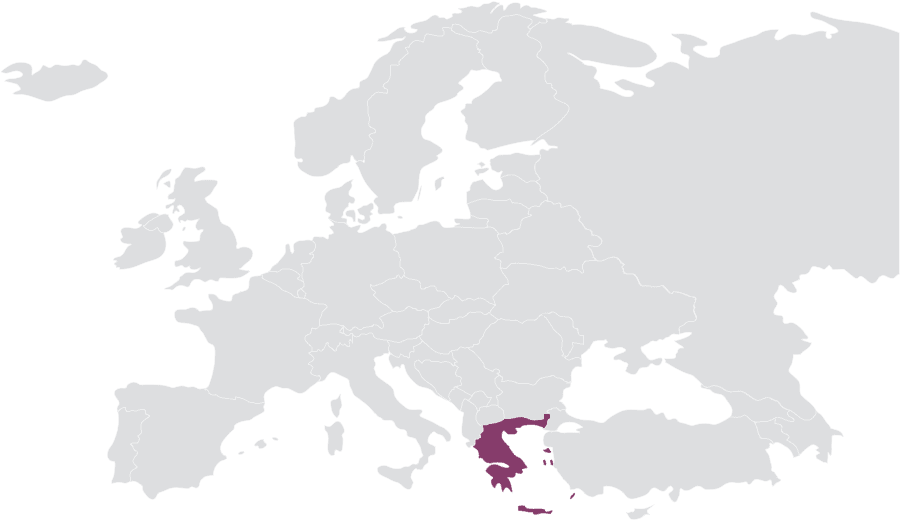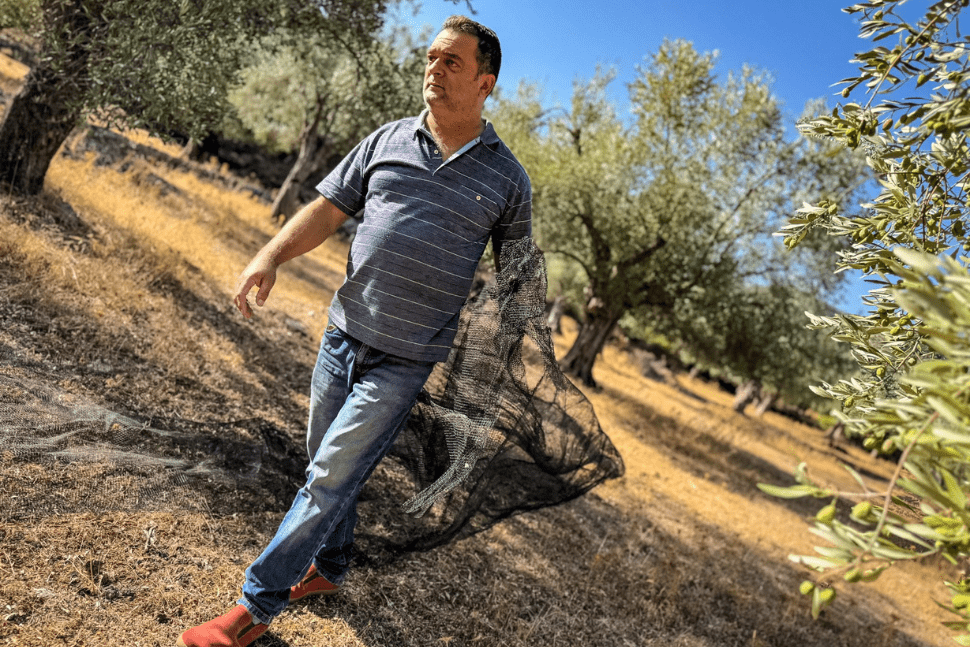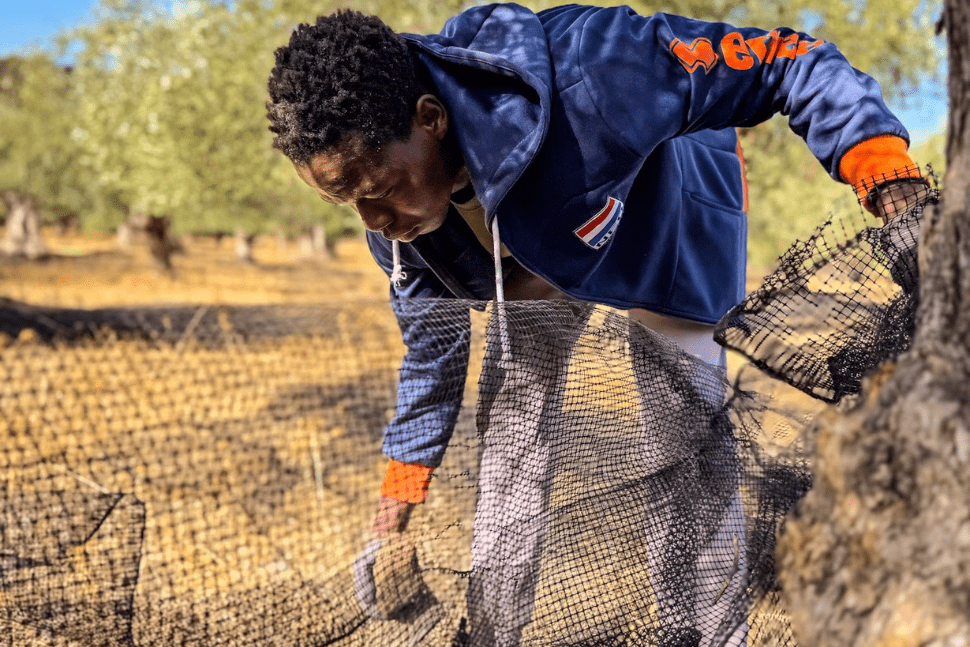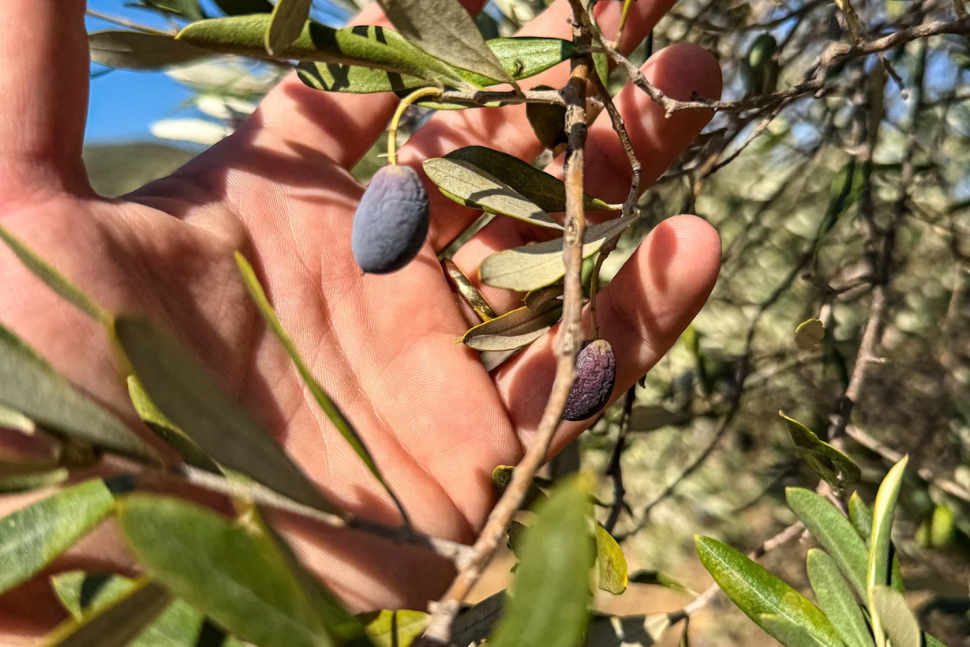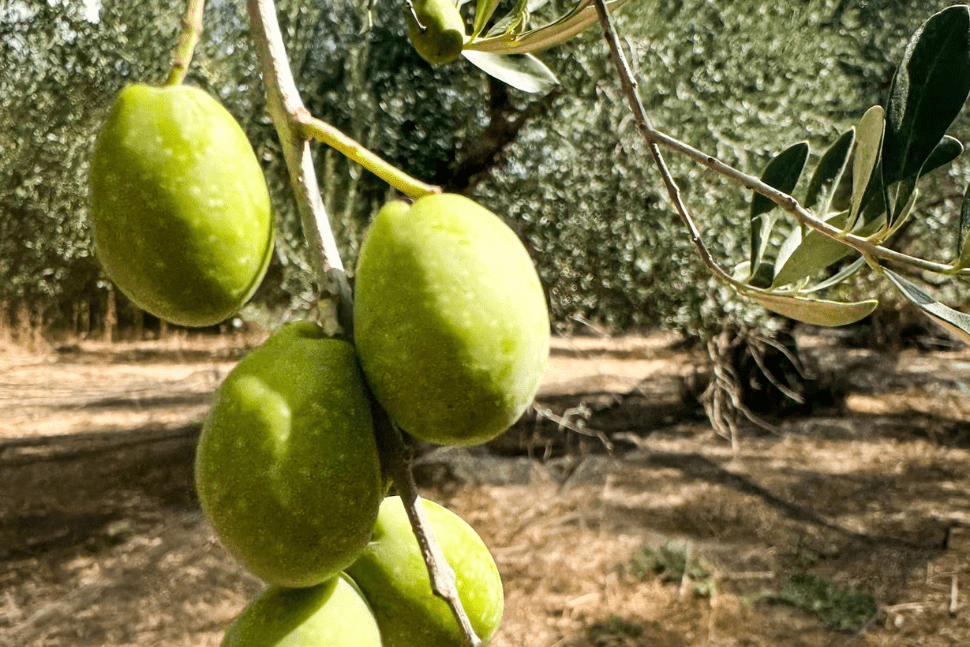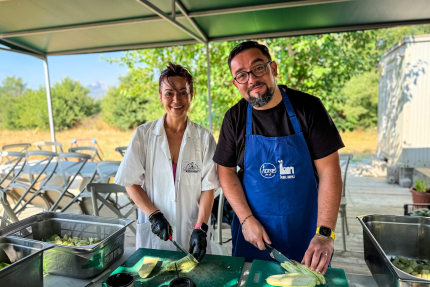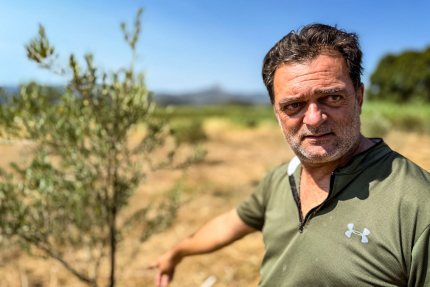“Do you see how small they are?”
“I see tears in your eyes.”
“Because I feel like crying. Olives the size of raisins. The only thing I can think of is to water all the trees. But there are thousands of them. It’s impossible.”
Not a cloud in the sky. The heat in Greece shows no mercy. There’s been no rain since April, and even the centuries-old olive trees, which have thrived for generations, aren’t prepared for this drought.
“We care for them like we care for our own children. Before harvest, we need rain. Olive trees drink through their roots and leaves, and the fruits quickly become lush. But that should have happened weeks ago.”
In Home Village, where new olives were recently planted, the well pump works constantly, watering the garden through a web of pipes and sprinklers. The young olive trees are watered by hand.
“There are 168 in this section. Two minutes per tree. Six hours and it’s done,” Nikos says with a helpless smile. Six hours, nearly a full workday for one person, and we’re short on hands. The refugees working in the garden are stretched to their limits, so we jump in to help.
We know it’s time to sound the alarm, to tell everyone that the climate is changing, and more anomalies will eventually lead to disaster. But before we write or speak, we must save what we can—so we water the trees. Michał from Radio 357 and other volunteers join us.
In our garden, we pamper the olives with water regularly. Tomorrow, the harvest begins, and we’ll start producing the finest olive oil—the kind you know and love.
